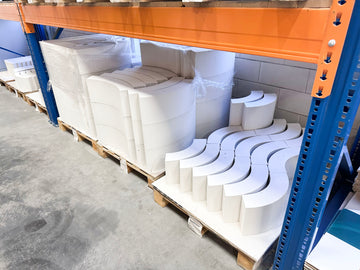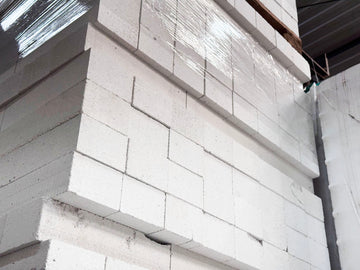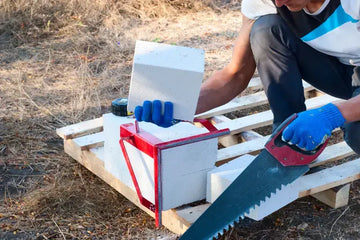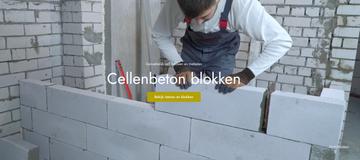Is aerated concrete blocks fire resistant? Which mistakes are easily made?
by Marco Janssen on Jul 18, 2023
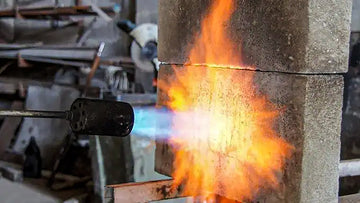
The use of aerated concrete blocks in construction has become increasingly popular in recent years. This is mainly due to the many advantages of this material, such as a good insulation value and a lightweight structure. But what about the fire safety of aerated concrete blocks? Are they really fire resistant? In this article we will answer these questions and also discuss which mistakes are often made when using aerated concrete blocks.
Fire resistance of aerated concrete blocks
Aerated concrete blocks are known for their excellent fire-resistant properties. The material consists of concrete aggregates mixed with cement and has a porous structure filled with air bubbles. These air bubbles act as insulation material and contribute to the good insulation value of aerated concrete.
The porous structure of aerated concrete also ensures that the material is less thermally conductive than traditional concrete, so that it is not likely to crack or crack when exposed to high temperatures. In addition, aerated concrete has a low thermal conductivity, which means that it transfers heat slowly.
These properties make aerated concrete highly resistant to fire. The material can slow the spread of flames and therefore offers extra protection in the event of a fire. This makes aerated concrete blocks ideal for use in buildings where fire safety plays an important role, such as homes, offices and schools.
Errors when using aerated concrete blocks
Despite the fire resistance of aerated concrete blocks, mistakes can still be made when using them. Here are some common errors:
- Improper installation: Proper installation of aerated concrete blocks is essential to ensure their fire resistant properties. It is important to use the right adhesives and grouting agents and to stack the blocks correctly according to the prescribed guidelines.
- Lack of fire-resistant cladding: Although aerated concrete itself has good fire resistance, it is still advisable to use additional fire-resistant cladding if required by building codes. This can be, for example, a layer of fire-resistant paint or a special coating.
- Overestimation of fire resistance: Although aerated concrete blocks are very resistant to fire, this does not mean that they are completely incombustible. It is important to remain realistic and take additional fire safety measures, such as installing smoke detectors and having an escape plan.
It is also important to note that the fire resistance of aerated concrete blocks can vary depending on the thickness and density of the blocks used. Thicker and denser blocks generally provide better protection against fire.
Conclusion
Aerated concrete blocks are generally very fire resistant due to their porous structure and insulation properties. They can slow the spread of flames and provide additional protection in the event of a fire. However, it is still important to take care when installing these blocks and take additional fire safety measures if necessary. By following these steps, you can ensure that your building is optimally protected against fire.
